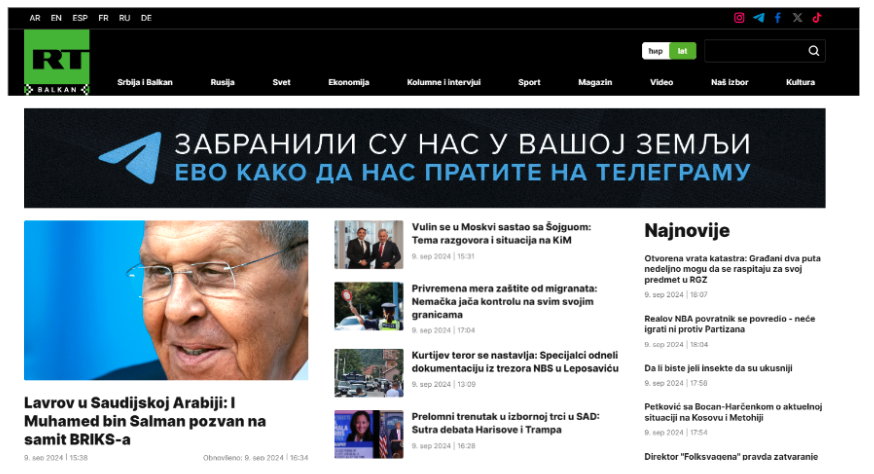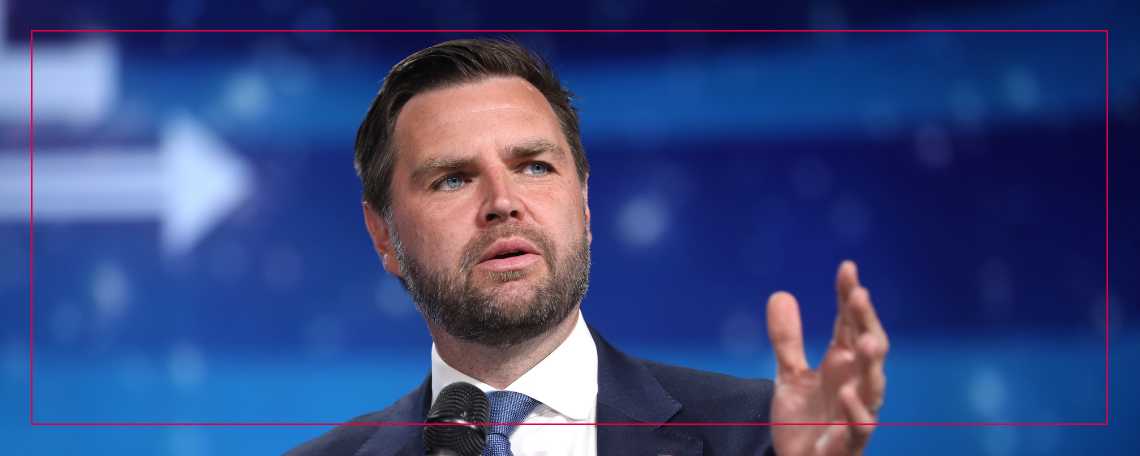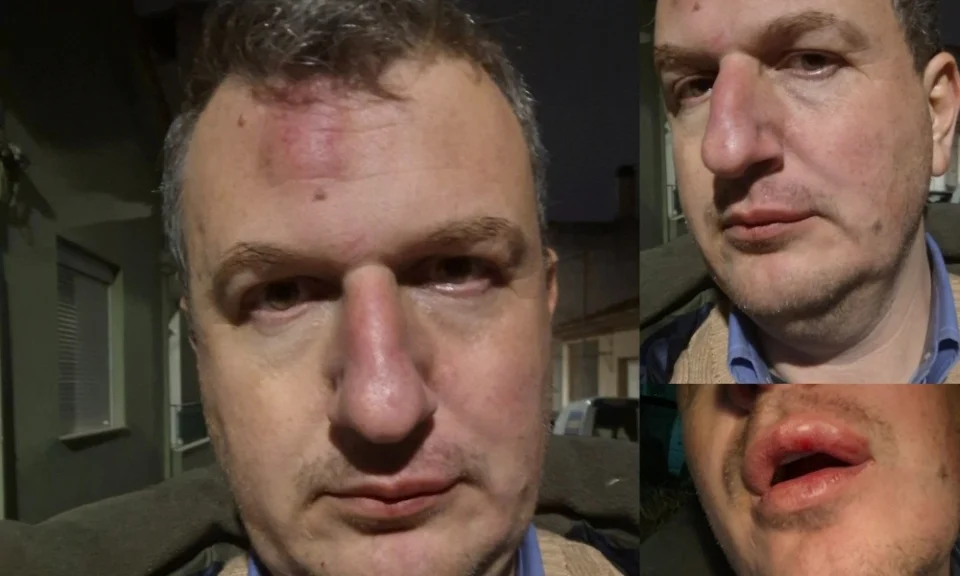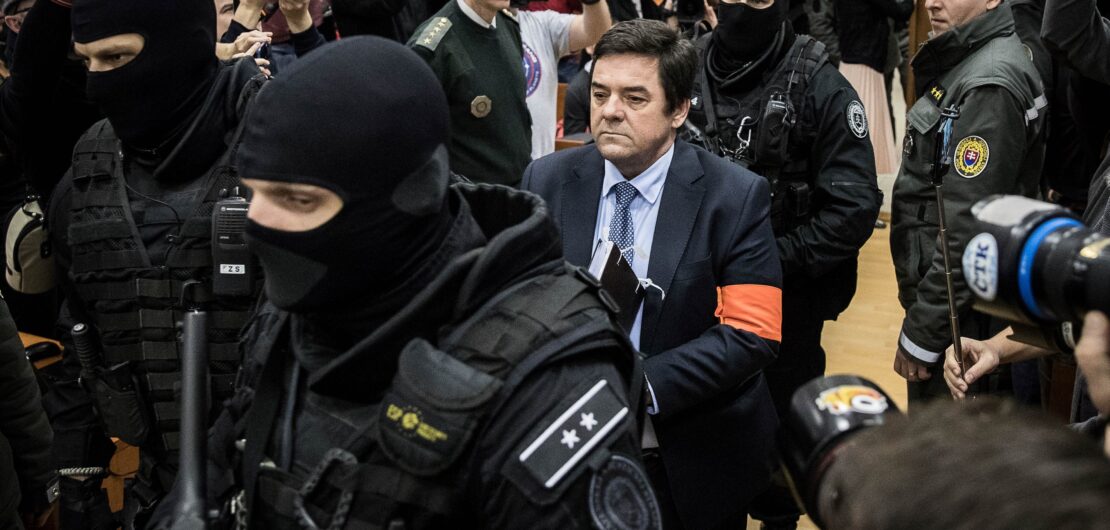
Balkan Gateway: How RT Circumvents EU Sanctions to Spread Kremlin Propaganda in Serbia
September 30, 2024
Fiction Turned Threat: JD Vance’s False Claims Spark Real-World Attacks on Journalists
October 1, 2024September 30, 2024 – France/Russia –
Despite being officially banned across the European Union since March 2022, Russia’s state-controlled broadcaster RT continues to reach French and wider EU audiences with ease through its website and mirror links. Reporters Without Borders (RSF) has condemned what it calls a “glaring loophole” in the EU’s sanctions regime, warning that the Kremlin’s propaganda machine is bypassing restrictions with minimal resistance.
RT’s satellite and cable broadcasts were halted in response to Russia’s invasion of Ukraine, as part of a broader EU strategy to combat disinformation and state propaganda. However, RSF’s latest investigation reveals that these measures have failed to close digital pathways. RT’s content remains easily accessible in France via its primary website and alternative mirror domains, despite the European Commission’s ban applying to both traditional and online platforms.
RSF criticized the lack of enforcement from ARCOM, France’s media regulator, and called for urgent action to block RT’s online presence. “Four days after our alert, accessing RT’s website is still child’s play,” RSF said in a statement, stressing that the EU’s credibility is at risk if it cannot uphold its own information security policies in the digital realm.
The problem is not limited to France. RT’s and Sputnik’s content is reportedly still viewable within institutions like the European Commission itself, and analysts have documented how Russia exploits social media platforms, proxy websites, and encrypted apps like Telegram to keep its messaging alive in EU territories. This persistence undermines the EU’s efforts to curb foreign interference and disinformation, especially during a time of heightened geopolitical tension.
RSF is urging national governments and EU bodies to expand regulatory powers over digital media, force platforms to comply with sanctions, and invest in public education to help audiences identify and resist propaganda. The organization emphasizes that state-controlled media like RT are not neutral outlets but strategic tools in an information war.
If Europe fails to address the digital reach of Kremlin propaganda, RSF warns, it leaves itself vulnerable to continued manipulation—and signals that its commitment to truth and press integrity ends at the borders of the internet.
Reference –




